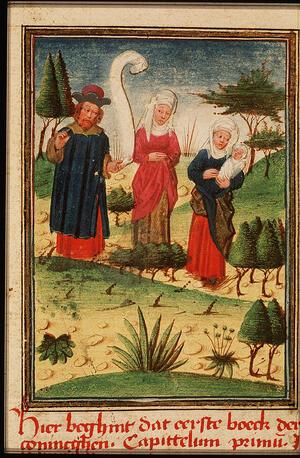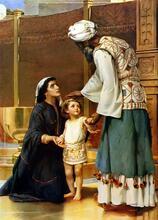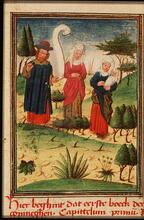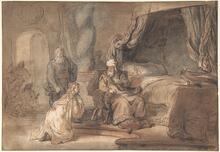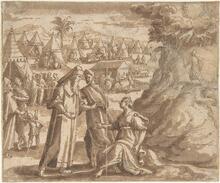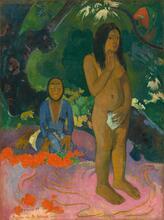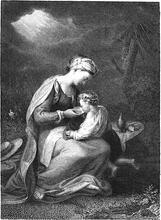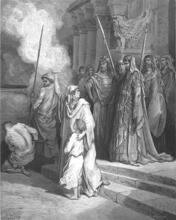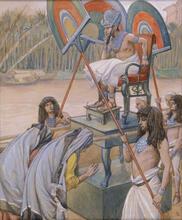Peninnah: Bible
The second wife to Elkanah in the Hannah narrative, Peninnah is unloved—hence hated—but fertile. She represents a woman who accepts social paradigms without examining them, thus acting out the type of jealousy between co-wives known from the matriarchal texts of Genesis.
Article
The second wife to Elkanah in the Hannah narrative (1 Samuel 1–2 set in the tribal period—eleventh century B.C.E.) Peninnah is unloved—hence hated—but fertile. She is also jealous of Hannah, Elkanah’s first wife, who is loved but barren. Peninnah’s prestige as mother of Elkanah’s children is emphasized at the annual pilgrimage to Shiloh, when Elkanah gives each wife and each child a sacrificial portion. Peninnah taunts Hannah on this occasion. Because the reader’s sympathies are directed toward the childless Hannah, Peninnah comes across as a malicious woman. In fact, she is probably a literary convention, a foil for the independence and goodness of Hannah, and should be regarded as such. The text does not suggest Peninnah has an independent personality in any way.
Peninnah represents a woman who accepts social paradigms without examining them, thus acting out the type of jealousy between co-wives known from the matriarchal texts of Genesis. Unlike the fecund second wives in Genesis, Peninnah has no voice in the text and is mentioned only in three capacities: as second wife to Elkanah, as mother of an unspecified number of daughters and sons, and as tormentor of Hannah. She disappears from the narrative when Hannah conceives.
Meyers, Carol, General Editor. Women in Scripture. New York: 2000.

